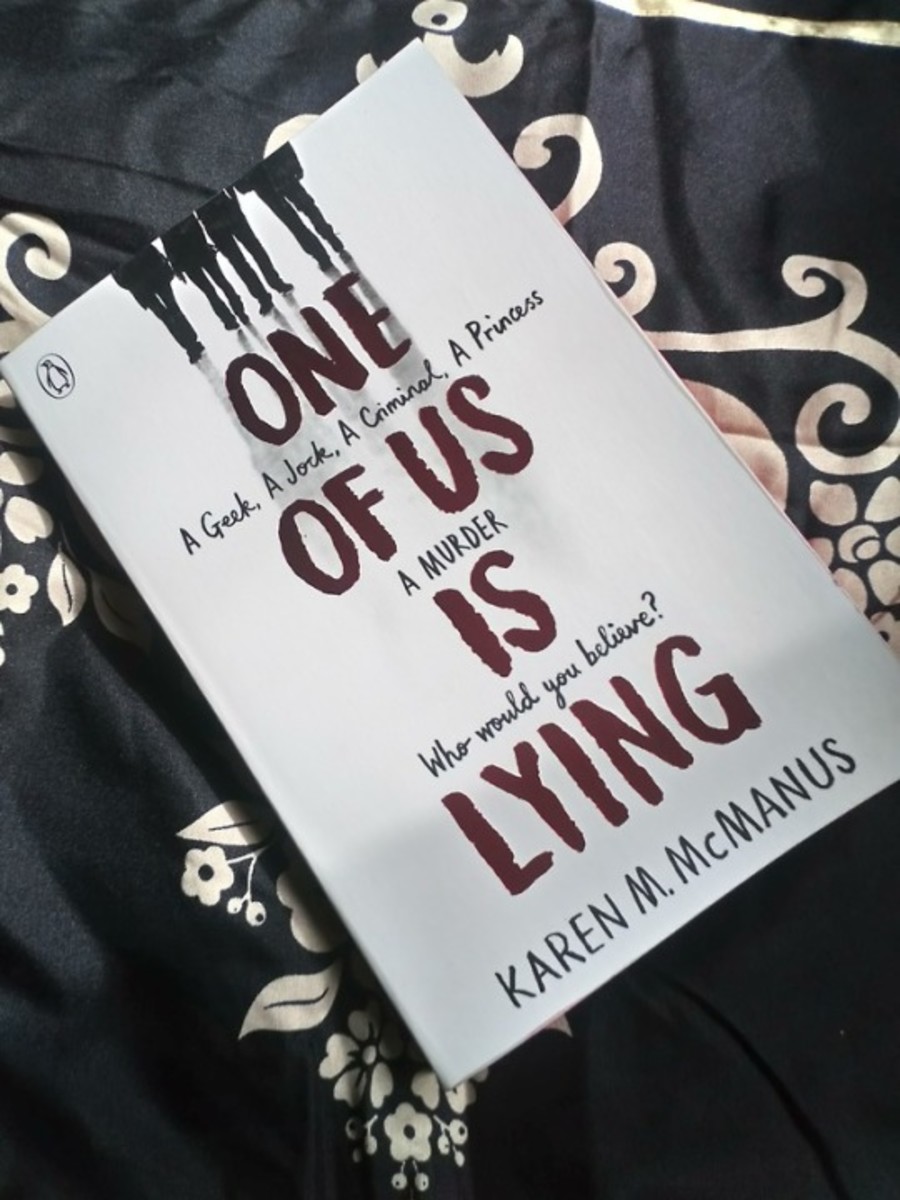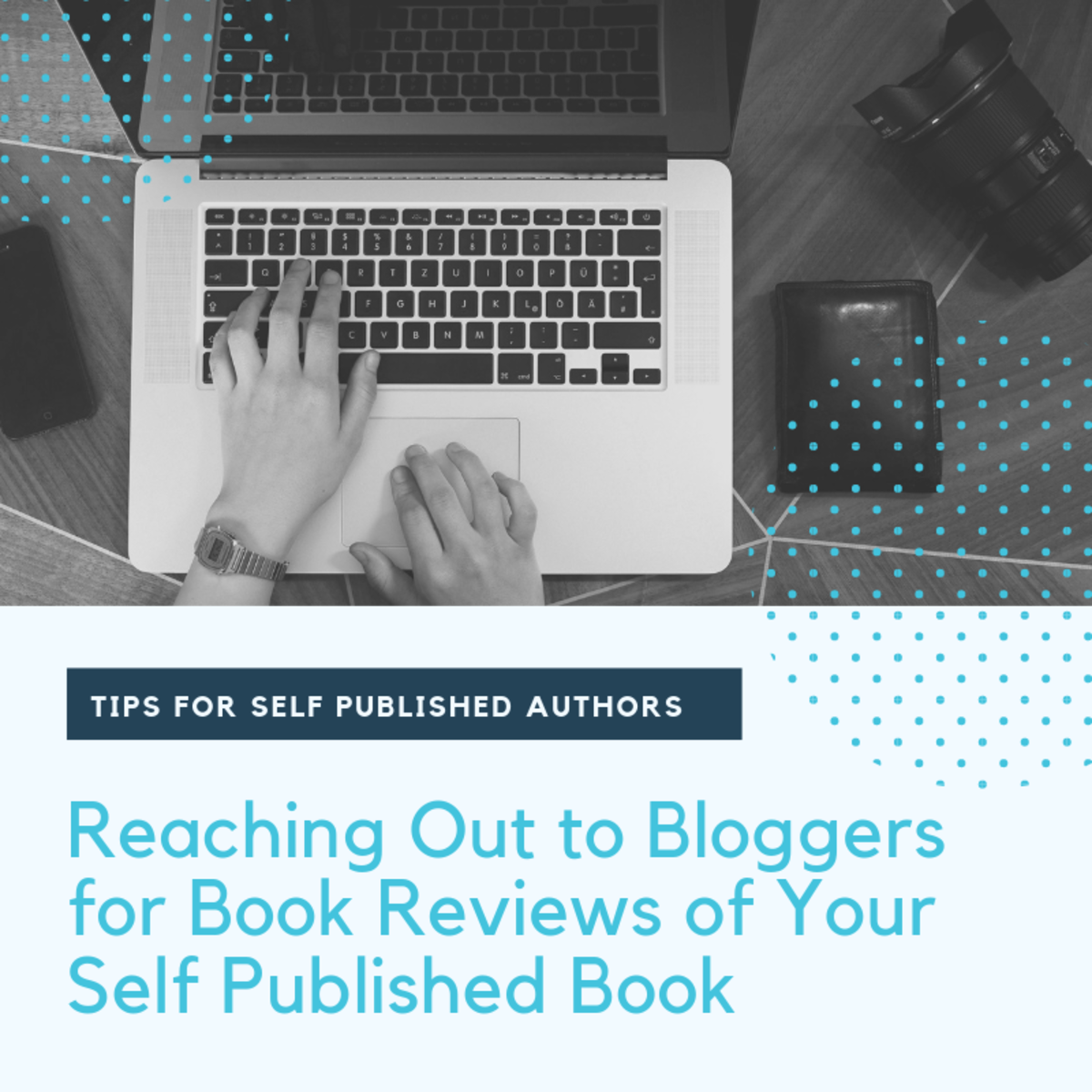How to Write Amazing (and Fair!) Book Reviews
Tips for Writing the Best Reviews
Book blogging has become a very popular pastime. More and more people are turning to book reviews to determine what the next book to be added to their to-be-read (TBR) shelf will be. The world wide web affords everyone with an opinion an opportunity to share it, and book reviews provide readers (or followers) excellent information about the books that have already caught their attention. Some reviewers are immensely popular, whether they run their own book blog or they review books on Amazon or another similar service. Others fail right from the start. There are several factor that make a difference in how well your book review (or product review) is received by your audience.

Remember, people are relying on your review
There is a certain responsibility behind writing a book or product review. People will read what you have to say and make decisions based on your experience with the item that you are reviewing. You want to give your readers the information that they need without providing so much information that you ruin any good surprises. Your primary aim is to be honest about the book in the review that you write. If you wish to be successful in the long term with keeping a book blog or writing book reviews on Amazon, Hubpages, Squidoo, or other such service, you're going to need to take into consideration that you are going to need to work on building trust and reliability.
Yes, there are people who will decide whether or not to make a purchase of a book or a product based on the reviews that they read. You may be doing an author a huge favor by providing an excellent review, but remember that even negative reviews are helpful. And there are side benefits to writing book reviews, and particular to keeping a book blog, as I will discuss later on in this hub.
See for Yourself: Written on the Body

Review everything!
When I first started writing book reviews, I was very hesitant to review those items that I wasn't enjoying. My biggest struggle came when I read (and subsequently reviewed) Written on the Body by Jeanette Winterson. I hesitated to review this book at all because it was recommended to me by my best friend, and it was the first book I'd read in a long time that I had to really struggle to read all the way through. You can read my very short review of the book by clicking on the title above.
Written on the Body is the first time that I felt the need to give a truly negative review to a book. Up to this point, using a five star rating (which I still use -- see below), I tried to absolutely never give a book less than three stars. If I couldn't rate it at three stars or higher, I simply chose not to review the book. The truth was that I mistakenly believed that negative reviews weren't helpful to the consumer. I was wrong. Negative book/product reviews are very helpful to the consumer. Some people only read the negative reviews!
How do you do book (or product) reviews?
Do you read only the positive reviews? Negative Reviews? Or both?
What readers want
When I first started writing book reviews, I had no idea what readers wanted. Instead of considering what I looked for when I covered book reviews on Amazon or on other book services, I thought I had it covered if I slapped a star rating on a book and gave a brief opinion of its content (whether fiction or non-fiction).
Your readers need two things from you if you are writing a book review. The first thing that they want and need is a summary of the book. Imagine that your reader has never heard of the book that you are reviewing. Take an hundred words or so to tell your reader what the book you are reviewing is about (or what the product is). This portion of your review should be kept relatively short, and you must be careful to avoid spoilers in your book review! Bear in mind that if the plot summary of a book you are reviewing isn't appealing to your reader, your opinion on the book is neither here nor there; he won't want to read the book because the plot itself doesn't interest him!
The other component of your book or product review should be your personal thoughts and opinions on the item that you are reviewing. Remember to let your audience know why you liked or disliked the product or book you are reviewing. Include sufficient information to tell the reader what he needs to know; don't skimp on your opinion! There is nothing worse than running into a book review where the author simply says "I liked this book. You should read it." If the book is so great, why should I read it?
Below I'll be giving you a step-by-step guide to writing effective book reviews with some tips from my personal experience.


A good review is all about trust
Any good affiliate marketer knows the importance of trust. While there is a very good chance that writing book reviews is never going to sell books and earn you an income, if you want your voice to really be heard, you need to build trust with your audience. There are several important factors in the building of trust. You should consider all of them and maintain your integrity at all times.
- Let the audience know who you are. Regardless of what platform you're using for your reviews, create an honest profile for your readers to visit so that they can get to know something about you. No, you don't need to provide your real name or even your e-mail address, but it is very helpful to give some information to the audience. I believe that when it comes to writing book reviews it is utterly crucial to let your readers know what kinds of books you enjoy reading. This also very much helps authors decide whether or not to send you ARCs (Advanced Reader Copies) to read and review.
- Choose a review system and stick with it. You don't have to use star ratings, but if you do, it is wise to make your rating system public. Do you tend to give everything either five stars or one star? Let the reader know! For more about Star Ratings, see below. Do note, however, that you don't have to use a star rating system. Whatever format you use for your book reviews, stick to the same system, whatever that system is!
- Make your review policies public. This is more important for authors than it is for readers, but I must confess to the fact that I read them religiously whenever I find a new book blog that I want to follow. If you're curious as to why, the reason is simple: it tells me whether or not the reviewer is being paid (in cash or in merchandise) for his or her reviews. If you accept any kind of payment for your reviews, you must disclose this information on your blog or profile!
- Always be honest. My example above about Written on the Body is one case in which I felt that I ultimately had to be honest with the readers of my reviews. Try though I might, I could not give the book more than two stars (and two stars was simply too generous). It would have been unfair to my followers if I had reviewed the book and given it a higher rating.
Honesty is incredibly valuable in recommending and reviewing books. As I stated above, Written on the Body was recommended to me by my best friend. I hated the novel, but when she also recommended that I try reading Fried Green Tomatoes at the Whistle Stop Cafe by Fannie Flagg I figured "what the heck" and found a new favorite novel in the process.
Good places to add your book review
- LibraryThing | Catalog your books online
LibraryThing catalogs your books online, easily, quickly and for free. - Share Book Recommendations, Join Book Clubs, Learn more about your Favorite Books and Share Books wi
See what your friends are reading. Create virtual bookshelves for your books to keep track of what you've read. Discuss your favorite books in a book club. Share quotes and book summaries with your friends. A fun way to find great books! - Share Book Recommendations With Your Friends, Join Book Clubs, Answer Trivia
See what your friends are reading. Keep track of what you've read and organize your books into virtual bookshelves. Join a book club to discuss your favorite books. A better way to find good books to read! - Amazon.com: Online Shopping for Electronics, Apparel, Computers, Books, DVDs & more
Online shopping from the earth's biggest selection of books, magazines, music, DVDs, videos, electronics, computers, software, apparel & accessories, shoes, jewelry, tools & hardware, housewares, furniture, sporting goods, beauty & person
About Star Ratings
First of all, you don't have to use star ratings on your book reviews. Not everyone does, and whether or not you choose to use star ratings for your reviews is entirely up to you. A five star system is fairly recognizable and the majority of the big review sites (such as Amazon) use them. Some reviewers choose to use a ten point rating system. You don't have to do either; you can simply allow your words to speak for themselves.
The advantage of star ratings is that they give your reader an impression at a glance. Most people don't read middle-of-the-road reviews, for example. Why bother if the writer only rated the book with three stars? Over time you will build trust with your readers so that they are able to determine at a glance, based on your star rating, whether or not they want to read your review of a book. If they enjoy your recommendations, the star ratings will help them to make quick decisions about what they want to read.
The most important part of creating a star rating system for your book reviews is to determine what constitutes a review at each level. Do you give five stars to every book that you like (just so that you don't pull down a book's average)? What do you consider to be "average?" Do you live in the first three stars (3-5)? Your audience (and the authors who might ask you to review their books) need to know what type of rating system you use, and how hard you are on the books that you read. This should be posted as part of your review policy, publicly somewhere on the site where you write your reviews. Either make a separate page for it or include it as part of your profile!

Platforms for your book reviews
- Hubpages
Hubpages is an excellent platform for your book reviews. Not only does Hubpages allow you to get paid (easily!) for your work, but it provides all of the tools necessary to put together an attractive and highly readable book review. - Zujava
Zujava is new, and in my opinion it looks incredible. The look is fairly simple but the platform is also very powerful. This is another option for a place to put your book reviews, especially if you would like the opportunity to make some money. - Wizzley
I have an account on Wizzley but I haven't really tried playing around with it yet. This is another fairly simple platform that will work will for book reviews while also still allowing you to make money writing. The clean look of Wizzley is a bonus. - Squidoo
Squidoo and Hubpages are my two favorite places to write my articles. While Squidoo is a bit more complicated than the other platforms recommended, you can produce incredible interactive book reviews and have the potential to make some money too! - WordPress
Wordpress is a great platform for any kind of blogging that you might want to do. The system is very well designed from the administrative point of view and I think you'll love Wordpress. The downside is that you cannot put ads on wordpress.com - Blogger
I keep my book blog on Blogger. I feel that it is the best blogging platform that I've personally used. You are able to put Google ads on Blogger (which is owned by Google) and therefore have some potential to make money with your book blog.
Step-by-step guide to writing a quality book review
- Decide what the audience is for your book reviews. I believe that this step is critical. Are you writing reviews for fans of romance novels? For self-help junkies? Young readers? While I don't believe that you should have to pigeon-hole yourself as a reviewer, it is helpful to know the audience to whom you are writing. I write reviews on all sorts of books, but it helps to know that my audience is primarily women in their twenties, thirties and forties. I write for them, targeting the language that I use in my reviews to this age group.
- Choose the platform for your reviews. Book blogging is very popular at the moment, but that isn't the only option that you have at your disposal. There is a list of possible options to the right. Some of these will help you to make a little bit of money on the side, while others serve best for simply writing for your own pleasure. If you're serious about writing your book reviews, check each of these out carefully and choose based on your purposes. And don't forget that you can write reviews in the locations listed above as well!
- Decide on a general format for your reviews. There are several factors to consider with regard to format. Firstly, determine whether or not you want to include an image of the book's cover in your review. If you are providing a link for the reader to purchase the book, this is considered fair use. Secondly, determine the length of your review. Most publishers prefer a 200-300 word review. Most readers, however, seem to prefer something in the 750 word range. You are also going to need to determine whether or not you wish to provide an affiliate link to the book you are reviewing (recommended).
- Summarize book details. This is a pretty simple process. I like to include the book's title, author, format (paperback or hardcover) and the number of pages in my copy. I also tend to include links to the book on the major social networking sites for readers (these are listed above). That way my audience can check out reviews written by other people, possibly trade their book with somebody else (Goodreads) or review the book themselves. You can also get followers this way.
- Write a summary of the book's content. Please don't simply rip the summary from the back cover or the dust jacket on the book. Write your summary of the book you are reviewing in your own words. This will tell your audience what the book is about and help them to establish whether or not it is something they would be interested in reading themselves. Your summary should be brief, at most 200 words. Remember that if you are following a publisher-mandated length of 300 word reviews, you want to leave enough space for you to write your review!
- Give your thoughts on the book that you've read. In this section, you want to be very thorough. Tell the audience what you thought of the book that you read. Was it good? Mediocre? Horrible? Be honest with your readers. Make sure to follow up your rating of the book with your reasons for why you felt that the book was good, bad, or somewhere in between. Simply telling your readers that you didn't like a book doesn't say anything to them. Was it crude? Not what you expected? What? Your readers are interested in what you have to say or they wouldn't be following your reviews!
Choosing your platform
Right now book blogging is especially popular. There are memes, awards, and various ways to get involved in the book blogging world. If you're comfortable with blogging and setting up a blogger or wordpress blog, then this might be the best option for you. Blogger allows you to have people following your blog, so this is a big bonus to those who write frequent reviews or who post regularly. If you're interested in Memes, this is also definitely the way to go, because Blogger really does allow for the maximum participation and integration.
You do have other options, however. If you don't read a lot of books or aren't planning on posting on a regular basis, you may decide to use one of the other options that I've suggested. I recommend not putting all your eggs in one basket. I have a number of hubs here on Hubpages as well as a large number of lenses on Squidoo, for example. The majority of my Hunger Games pages are on Squidoo, but I do have one hub here as well, a review of the novels. Spread yourself out a bit if you're going to take this option, and be aware of how each platform works in terms of payment. Book reviews don't tend to be very lucrative, but if you're serious about writing, these platforms are a great place to get started!
A note about spoilers
While this isn't generally an issue with any kind of product review, when it comes to book reviews, it is very important to treat your audience the way that you would want them to treat you if the roles were reversed. Please do not include spoilers in your book reviews. In most cases, it shouldn't be necessary to post spoilers about a book which your reader might enjoy. There may be some selective circumstances under which it is impossible not to include a spoiler (for example, a book review of Breaking Dawn would necessarily include spoilers from Twilight or New Moon). However, try to avoid spoilers wherever possible, since this can ruin your readers' experience with your reviews and it damages the trust that they have in you.
Which platform do you like best for book reviews?
Disclosure
Although Hubpages includes its own disclosure policy and I am not required to include disclosure on every Hub that I write, I feel that it is important that I let readers know that any purchases made from this Hub contribute either to my own personal income (through Amazon Associates) and to Hubpages. I also receive a percentage of the earnings from Ad clicks through this hub.
Additionally, and perhaps more importantly, I want to note that if you choose to follow my links through to the Hubpages signup page, Squidoo, Wizzley or Zujava, these links all include my tracker, which will allow me to earn a percentage of any income acquired through articles that you public on these platforms. My earnings will not deduct from your earnings but if you feel uncomfortable with this, you can always run a simple Google search to find these platforms without clicking through my tracking links.
Note that it is important to have a disclosure policy on your blog if you choose to book-blog. This is, in fact, a requirement by law!







